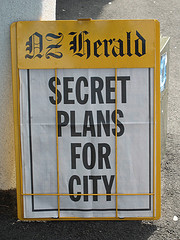Why everything takes longer than we think it will
Think about the countless times that you've been wrong about estimating the length of time it would take to do something, to get somewhere, or complete some type of task or project.
Something always goes wrong along the way, some unforeseen circumstance puts you or the people and systems you are counting on behind schedule, or we simply, (and fairly consistently), are overconfident in our own ability to gets things done in a given amount of time.
Why is that the case so often, why do is seem like we are constantly explaining away missed deadlines, or alternatively, griping about the inconvenience that other people's missed deadlines have on us? Well, it turns out there might be a (sort of seems fake but I am going to pretend it is scientific), law that will help us to explain this all-too-frequent phenomenon.
It's a simple little observation that is called 'Hofstadter's Law', named after American professor and author Douglas Hofstadter and it reads as follows:
It always takes longer than you expect, even when you take into account Hofstadter's Law.
Even the more famous and fictional Hofstadter is in on the game:
Hofstadter's Law: It always takes longer than you expect, even when you take into account Hofstadter's Law.
— Leonard Hofstadter (@TheRealLeonardH) October 25, 2012
The 'law' tries to describe and help us understand just how difficult it is to accurately estimate the time it will take to complete tasks of any meaningful complexity. And the kicker is the law is recursive in nature - even taking the law into account doesn't prevent us from failing to underestimate the time needed to complete complex tasks.
It is a kind of cruel equation - we think task 'A' will take four hours - we take into account Hofstadter's Law and add a couple of hours to the estimate - but Hofstadter's Law itself kicks in AGAIN, to remind us it will STILL take longer than we estimate.
What can we do about this seemingly irrational but often true observation about our weakness in estimating the time required to complete tasks?
Maybe we should think first about the available time we have, and what realistically, and based on past experience we can reasonably expect to accomplish in that time. Rather than looking at a complex project, or even a series of tasks and trying to count up how much time they will take, (and inevitably underestimating), thinking about the available time first, will force us to think more critically and probably come up with more reasonable expectations of what can be accomplished. 'What can you get done in three hours?' is a much easier question to answer than 'How long will it take you to write this article?'
So the next time you are faced with the prospect of estimating how long it will take to complete a complex undertaking remember the wise words of our friend Hofstadter, and do your best to not fall into the trap of thinking 'This time it will be different', because it never is.

 Steve
Steve


